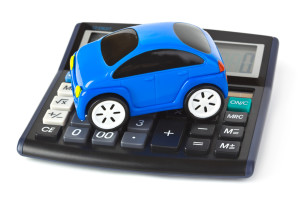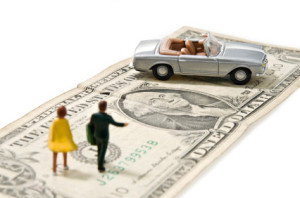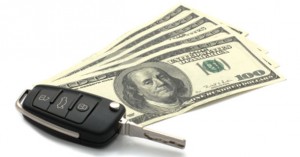November 12, 2015
 Buying a car is not a simple decision to make and you have probably spent quite a bit of time thinking about it. From choosing the type of car you want to thinking about how to finance it, you need to put a lot of serious thought into the decision you are making. Once you have settled on make of vehicle that you want, it is time to start thinking about how to pay for it. So which is the best financing option for you?
Buying a car is not a simple decision to make and you have probably spent quite a bit of time thinking about it. From choosing the type of car you want to thinking about how to finance it, you need to put a lot of serious thought into the decision you are making. Once you have settled on make of vehicle that you want, it is time to start thinking about how to pay for it. So which is the best financing option for you?
Buy in cash or savings?
Buying your car on your savings is the best option when interest rates are low on your savings account yet you have enough savings. It is much better than keeping the savings with a low interest rate and borrowing a personal loan at a higher interest rate to buy the car. You can also combine your savings with a personal loan that covers a partial cost of the vehicle.
It is advisable to only use your savings when you have enough to leave some for emergency costs after paying for the car. If you do not have enough savings to pay for the entire price, you can use it to give the biggest deposit possible and reduce the car loan repayment amount.
Personal Loans
Personal loans are the cheapest way to finance a vehicle if you have a great credit score. Personal loans are available from banks, building societies and other finance providers. Avoid securing personal loans against your home as you will be at risk of losing it if you do not make your payments on time. You can shop around for personal loans from the different institutions available. The only challenge with taking out personal loans is that it may take some time to receive the funds and it will affect your other borrowing options.
Hire purchase
This is a way of buying certified pre-owned cars through paying in installments. You need to put down a deposit and make the rest of the payments for the vehicle between 12-60 months. Hire purchase programs are arranged by the vehicle dealers and can be very competitive for brand new cars. You do not own the vehicle until you make your last payment.
Hire purchase is a great option for you if you are in a rush to purchase your vehicle and cannot wait for finance provider protocols. The deposit can be as low as 10% with flexible repayment terms and competitive interest rates. The only challenge with hire purchase is that it may turn out be more expensive for short-term agreements.
Personal contract plan
A personal contract plan is a special car financing option that is a variation of the hire purchase option but with lower monthly payments. This personal contract plan is where you agree to pay the difference between its sale price and price for resale back to the dealer based on a forecast of annual mileage. It is a short term plan usually with a maximum of 36 six months after which you can give back the vehicle to the dealer at no extra cost, trade in the vehicle for another one or pay the resale cost of the vehicle and keep it. This payment plan is great if you do not want to settle on one type of vehicle, it is also much cheaper with a choice of what to do at the end of the payment period.
Grace Malloy is a loan officer with a lending firm. You can read more about your car financing options at Ideal Auto USA.
Tags:
Auto Renting,
budgeting,
Car,
Car Finance,
investments,
loans,
savings
April 23, 2015
 Vehicles have become a necessity and so many people own vehicles. Vehicles are relatively expensive hence most people consider financing or leasing when getting a vehicle. There are important things that you must know when financing your vehicle and they are discussed below.
Vehicles have become a necessity and so many people own vehicles. Vehicles are relatively expensive hence most people consider financing or leasing when getting a vehicle. There are important things that you must know when financing your vehicle and they are discussed below.
Financing options
There are two main types of financing for vehicles and they are direct-lending and dealership-financing. Direct-lending is where you get a loan from a bank or any other financing institution such as a credit union and you make an agreement to pay over a period of time. Once you have decided on a vehicle to buy and the dealer to buy it from then you can pay with the direct loan you received. Dealership financing is where you pay for your vehicle through the dealership. The dealer gives you a vehicle and you make an agreement to pay for a period of time but you also pay for the finance charge. In this case, you must have an assignee such as a bank. Before choosing a financing option, you must do your research and shop around for the best options before making a decision on whether to buy or lease. You can do this on the internet by just a click on the computer.
Before buying or leasing a vehicle
Before you buy or lease a vehicle, you must consider the federal or state laws that govern financing and leasing of vehicles. These laws will ensure you lease or buy a vehicle legally and also give information to make the process simpler and easier. You must also determine how much you can afford. Before making a purchase or taking up a lease, you must assess your financial situation and make sure that your income is able to cover the payment for the vehicle as well as your living expenses. You can get information about our financial situation online with just a click. It is also advisable to shop around for a financing deal that is comfortable for you. You should not strain financially after taking up financing for a vehicle.
When applying for financing
When you are applying for financing you should talk to the finance and insurance department of several dealerships to determine the financing options that they have and the cost to be paid monthly. Talking to several dealerships will help you determine the best dealership that fits your needs. You must also be ready to share your financial information such as your current financial situation as well as past and current credit obligations so that the dealerships can determine what amount of financing you can qualify and determine the vehicle that you can buy with your current situation. The dealerships also require your financial information so that they can take it to the consignee. When you are considering leasing a vehicle, you must know that you can only use it for a particular period and for a number of miles. Leasing payments are usually lower than fi9nancing payments but freedom of using the vehicle is limited. Some creditors may need you to have a co-signer especially when your financial situation is shaky so that they can take up responsibility in case you default to pay the loan.
Tags:
auto insurance,
Business,
Car,
Car insurance,
investments,
Vehicle Financing
August 28, 2013
 It will happen at a stoplight on your way to your first real job. The Plymouth Acclaim that you earned merely because you were the 16-year-old child of middle class suburbanites will not go, no matter how hard you hit the gas. The serpentine belt will blow, again, and it will seem silly to put more money into a car that is old enough to drink.
It will happen at a stoplight on your way to your first real job. The Plymouth Acclaim that you earned merely because you were the 16-year-old child of middle class suburbanites will not go, no matter how hard you hit the gas. The serpentine belt will blow, again, and it will seem silly to put more money into a car that is old enough to drink.
Still, what car seems affordable on an entry-level salary? Even the most economical of economy cars is likely too expensive to be paid for out-of-pocket. More often than not, securing an auto loan is a necessary step in purchasing your first car, and there are a few things that are helpful to know before you trust the offer made by your dealer.
New or Used?
Even before thinking about a loan, it is wise to decide whether you will purchase a new or used car, and from who? There are many pros and cons to both used and new cars, so it’s best to keep your budget in mind as you make your decision. Used cars, whether purchased as a “pre-owned” vehicle from a dealership or from your neighbor on Craigslist, will more often than not be significantly cheaper than a new version, and may not even be that, well, used. Notoriously, the value of a car depreciates as soon as it drives off the lot. If you buy a used car, make sure you have access to its entire history. Know who owned it before you. Know what accidents it has been involved in. That way, if you’re on the brink of having a used car horror story, you have the information to navigate your new-to-you car in another direction. On that note, never sign an As-Is statement. You are entitled to 30 days to find out whether the car is in working order.
As for new cars, they can be more expensive. And if few people are already driving that year or model, you can’t be absolutely sure that you haven’t landed yourself a lemon. Research is just as important with new cars as it is with used ones—you want to know the MSRP (Manufacturer Suggested Retail Price) and what deals other dealerships are offering on your chosen model. The Internet is a great place to research car prices, warranties, and safety features. Finance options for your new or used car can also be found online.
The Loan
Before you apply for a loan, it is wise to know your credit score first. There are many places that will give you access to your credit score for free online, such as Credit Karma. This will help you know what kind of interest rate for which you are eligible. Generally, the higher your credit score, the lower your rate. As you are young, it’s likely that your credit score will be low due to your brief credit history.
“The newer the car, the lower the rate” is also a piece of car finance advice that has been bandied about since the beginning of auto loans. While this may seem like a tick in the “pro” column for new vehicles, remember that the cost of the vehicle itself will likely be more than enough to make the savings in interest a moot point.
There are many ways for you to finance your car, and it’s smart to both diversify your application process and go to the dealer with a pre-approval already in place. Apply for loans at banks and credit unions, online financial institutions, and even the dealership (though these loans usually aren’t as competitive). Be honest on your applications, and take your time when considering all of your offers. Know the total cost of the loan. Pay attention to the loan term—a shorter term will involve higher monthly payments, but less interest. Don’t go for an offer that comes equipped with a laundry list of fees—you can be certain you won’t make up for the difference in savings on interest. No matter the case, do the math. Which offer works best with your current income? Which offer will allow you to save the most money in the long run?
If you go to the dealership pre-approved for a loan with a nice low rate, you will have the upper hand in negotiating what could be an even lower rate with you dealership.Be wary of the dealer offering you a lower price on the car with a higher interest rate. Remember, do the math. Rely on your own research. If you display clear confidence in your knowledge, it is less likely that the dealer financial manager will try to pull the wool over your eyes.
Driving Away in Your New…
While attempting to seduce you into their loan, the car dealership may offer you a number of “services” that also may not be in your best interest. Any “extended warranty” is more than likely not worth the extra cost—most warranties are extensive enough to cover any damages, and at the point the extension kicks in you will have spent more than you would out-of-pocket for repairs. Many dealerships offer expensive security systems that you could easily install yourself for less. Be careful about deciding to purchase life or disability insurance from your dealership. Like with loans, you may be better off getting a better deal elsewhere, if you need these types of insurance at all.
Of course, remember to have fun as you shop, and to buy a car that you can see yourself driving. A car may ultimately be a practical tool for transportation, but the right car can also provide a pleasurable experience.
Levi Hyatt is a part time blogger and a full time wannabe stunt driver. He’s carried his passion for cars over to writing about car financing. When he’s not going full throttle, Levi enjoys playing guitar for his cats George, Ringo and Paul.
Tags:
Assets,
Car,
Car Financing,
Car insurance,
economy,
insurance,
Interest Rates,
loans
December 17, 2012
 As with most major expenses, cars will not only have you shelling out on the immediate cost, but will also force you to spend more and more during the time you’re in ownership and so being able to limit expenditure is imperative.
As with most major expenses, cars will not only have you shelling out on the immediate cost, but will also force you to spend more and more during the time you’re in ownership and so being able to limit expenditure is imperative.
Remember that a car takes a lot of maintenance, as well as the constant need for fuel and the odd top up of oil; but it is the requirements of services and yearly check-ups that can cost into the hundreds and really put a strain on your finances.
There are ways for each stage of car ownership where you can find ways to be able to save money, even when buying the car in the first place, as well as bringing down fuel costs, road tax (if in the UK)and maintenance costs.
- Never ever pay the window price, every car has a target price and you should aim to get a slight percentage off of the price the showroom is suggesting. Look online for the guide price of the car(s).
- Look around to see what you should be getting for your car if part-exchanging. Check ads for cars similar to yours and what they are being valued at, as well as remembering back to what you spent on it when you bought it and whether you have added value over the years with new parts.
- If you’re in the market for a new car, but aren’t worried about the likes of garnishing it with endless optional extras that can rack the price up by a few hundred if not thousand, then ask the dealer whether they have anything new on the forecourt that is a more basic model. This also allows you to get the car earlier, instead of having to wait for it to be built at the factory.
- Try to get a deal that has a few extra benefits thrown in such as free servicing for five years or a years’ worth of free insurance, interest free APR deals are also well worth keeping an eye out for.
- For those after a new fleet car, first of all get looking for a frugal motor that is perhaps diesel-powered as opposed to petrol and then look to get a fuel card to hand from somewhere such as FCSICard.com in order to save on your VAT.
- If you’re a young driver and are considering your options in terms of insurance, try to get your parents or someone with a great deal of driving experience as a named driver which should help bring your premium down.
This is an article from FCSI Card fuel card supplier for fleet drivers in Portugal and around Europe.
Tags:
budgeting,
Car,
financial planning,
money,
Money Saving,
savings
November 12, 2012
 The car rental market is saturated with providers, most of them above board and operating an ethical service but as with any industry there are some unethical firms out there looking to rip off their customers. We all hate additional charges, particularly if they are hidden from us and sprung on us at the last minute…so we’re giving you a heads up. Even if you use only the most reputable companies with the highest level of trust you can still be subject – legally – to these charges. View some examples you may not automatically think of below:
The car rental market is saturated with providers, most of them above board and operating an ethical service but as with any industry there are some unethical firms out there looking to rip off their customers. We all hate additional charges, particularly if they are hidden from us and sprung on us at the last minute…so we’re giving you a heads up. Even if you use only the most reputable companies with the highest level of trust you can still be subject – legally – to these charges. View some examples you may not automatically think of below:
Drivers licence
Many providers have limitations with regards to the type of licence you can use with substantial extra charges in place for customers without these specific pre-requisites. The number of points on your licence can be a factor (generally the rental companies want no more than 6), the duration for which you have had the licence is another factor with a year minimum seeming to be the requirement for an number of firms. Age is also a factor with service providers listing a minimum and maximum that they will accept – this is usually around a 21 year old minimum with a 75 year old maximum. Finally, the type of licence you hold is a factor with most providers only accepting full licences before they hand over the keys.
Amendments to booking
It’s common to incur charges for amending your booking at a later date – given that hiring a car is not a small cost though, if through carelessness or ignorance you do fall subject to some of these charges the cost to you can be significant compared with say, losing a restaurant reservation deposit, particularly if the hire is planned for a longer duration. Obviously in some situations things happen last minute which mean that you could not have cancelled the booking any sooner but as soon as you know you’re going to need to cancel, do it! Upon booking too it’s vital to check the time restrictions for cancellations as these can vary from firm to firm.
Out of hours
This is an understandable charge given that an out of hours service will incur significant additional costs to the provider, however it can be beneficial to be aware of any out of hours charges prior to booking. Perhaps it might not be that inconvenient to return the car those few hours earlier after all…
Other Extras
Travelling with children? Opting for a diesel car? Need a sat nav? These can all cost more depending on the provider you go with. Although these are all standard add-ons with many vehicles these days when renting, anything more than the norm (especially with the budget firms) will add on to that final price. In particular booster seats, baby seats and child seats all appear to be optional and require additional payment.
Area charges
As our final point let’s look at location-based charges. The congestion charge applicable to those vehicles driving into London is a good example of these – perhaps you could look at a hotel just outside of the charging zone if you are thinking about visiting and hiring a car in the capital! Also, one way rentals and renting in premium locations can hike up the price too.
Tags:
Car,
Car Renting,
financial planning,
Renting
 Buying a car is not a simple decision to make and you have probably spent quite a bit of time thinking about it. From choosing the type of car you want to thinking about how to finance it, you need to put a lot of serious thought into the decision you are making. Once you have settled on make of vehicle that you want, it is time to start thinking about how to pay for it. So which is the best financing option for you?
Buying a car is not a simple decision to make and you have probably spent quite a bit of time thinking about it. From choosing the type of car you want to thinking about how to finance it, you need to put a lot of serious thought into the decision you are making. Once you have settled on make of vehicle that you want, it is time to start thinking about how to pay for it. So which is the best financing option for you?




Recent Comments